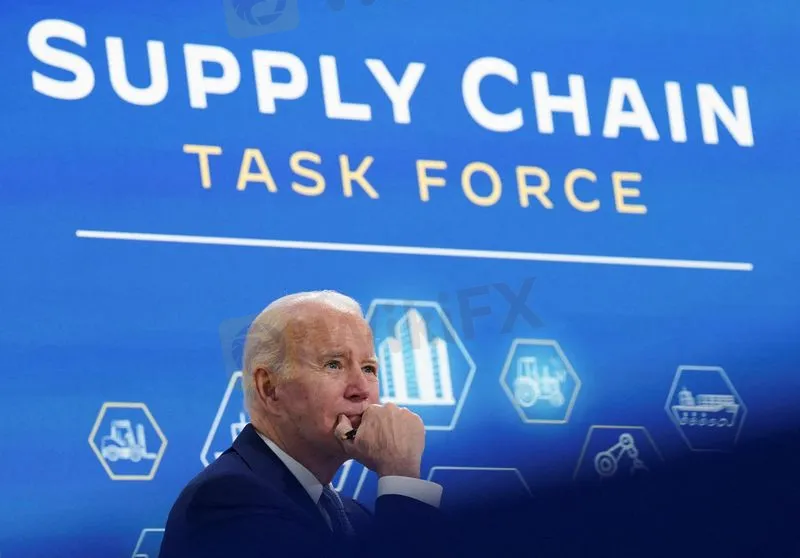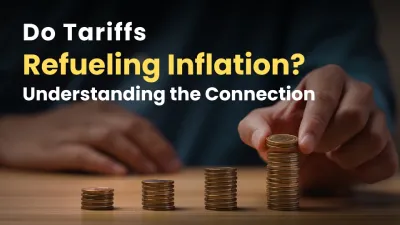简体中文
繁體中文
English
Pусский
日本語
ภาษาไทย
Tiếng Việt
Bahasa Indonesia
Español
हिन्दी
Filippiiniläinen
Français
Deutsch
Português
Türkçe
한국어
العربية
Christmas Supply-Chain Crisis Has Been Averted, Biden and FedEx CEO Declare
Abstract:President Joe Biden said U.S. actions to eliminate supply-chain snarls have staved off a pre-Christmas crisis, ahead of a meeting with U.S. officials and private-sector companies, including FedEx, on Wednesday.

President Joe Biden said U.S. actions to eliminate supply-chain snarls have staved off a pre-Christmas crisis, ahead of a meeting with U.S. officials and private-sector companies, including FedEx, on Wednesday.
Biden created a task force in June to address high prices and shortages of consumer goods and crucial components, thanks to pandemic-related labor and demand issues.
After pushing for round-the-clock port operations, new transport rules and enlisting the help of big retailers including Walmart Inc. and Target Corp, the White House says it has made significant progress.
“The much-predicted crisis didn't occur,” Biden said. “Packages are moving, gifts are being delivered, shelves are not empty,” he said. Shelves at grocery and drug stores are stocked at 90% of their full capacity, he said, and deliveries are happening at a faster rate than before the pandemic.
A record number of goods are moving through Southern California ports faster, with shipping container wait time cut in half, the White House said.
Fedex CEO Fred Smith said supply-chain issues are “not all solved” but that “most of Santa Claus' products will be delivered to the consumers.”
Inflation pressures should ease as labor shortages in the logistics industry are filled, he said. “We think the peak season is going to be a good one.”
Last month, Walmart Chief Executive Doug McMillon said a decision to extend port hours was having a positive impact on the flow of goods.
Retailers pulled holiday imports forward by a couple months and launched Christmas promotions early to ease pressure on the overburdened supply chain.
While thousands of loaded import containers have been cleared from docks since the administration began intervening, the busiest U.S. seaport complex of Los Angeles/Long Beach continues to grapple with a flood of empty containers and about 90 container ships waiting offshore to unload.
Supply-chain issues continue to affect many U.S. industries.
Reuters reported this week that candy-cane makers, like retailers and farmers, have been slammed during COVID-19 with high commodity prices, labor shortages, and transportation and supply-chain snarls preventing them from fully cashing in on the holiday season.
However, corporate profits overall have been strong, with most S&P 500 companies beating analysts' third-quarter expectations.
Pent-Up Pandemic Demand
Much of the shipping crunch resulted from the pandemic. Homebound Americans with unspent travel and entertainment dollars and government stimulus checks splurged on everything from food and refrigerators to toys and exercise equipment. The demand for imports overwhelmed supply chains.
Biden has also sought investigations into excessive shipping fees and possible illegal conduct in oil and gas markets.
Wednesday's meeting included the secretaries of Agriculture, Commerce, Labor and Transportation as well as National Economic Council Director Brian Deese and Port Envoy John Porcari.
Also joining were chief executives of clothing retailer Gap Inc, Kansas-based trucking company Yellow Corp and the American Association of Port Authorities.
The White House on Wednesday also said fuel prices had dropped 12 cents a gallon on average to $3.30 since the recent peak last month, but added that Biden “believes that they are too high, especially given that we are emerging from a once-in-a-century pandemic.”
For more blockchain news, please download WikiBit - the Global Blockchain Regulatory Inquiry APP.

Disclaimer:
The views in this article only represent the author's personal views, and do not constitute investment advice on this platform. This platform does not guarantee the accuracy, completeness and timeliness of the information in the article, and will not be liable for any loss caused by the use of or reliance on the information in the article.
Read more

Why Fed Keeps Interest Rates Unchanged, How Does It Affect To Forex Market?
Fed keeps interest rates at 4.25%–4.50%, impacting forex market. Dollar may rise as tariffs loom. Explore why rates unchanged and forex effects.

Do Tariffs Refueling Inflation? Understanding the Connection
Investigate how tariffs impact inflation. Learn how trade barriers influence prices and the broader economic landscape.

Will Trump's Trade Policies Fuel Inflation? BlackRock Warns of Economic Risks
Bitcoin and crypto prices plummet as recession fears and inflation warnings shake markets. Experts warn of prolonged economic challenges ahead.

How Will Central Bank Digital Currencies Could Shape Everything?
Central bank digital currencies (CBDCs) could reshape financial stability, addressing inflation, banking risks, and monetary policy challenges.
WikiFX Broker
Latest News
Exposing the Top 5 Scam Brokers of March 2025: A Closer Look by WikiFX
Gold Prices Climb Again – Have Investors Seized the Opportunity?
Webull Launches SMSF Investment Platform with Zero Fees
Australian Regulator Warns of Money Laundering and Fraud Risks in Crypto ATMs
The Withdrawal Trap: How Scam Brokers Lure Victims into Paying More
FCA to Investors: Think Twice Before Trusting These Brokers
Trump\s tariffs: How could they affect the UK and your money
Trump gambles it all on global tariffs he\s wanted for decades
TradingView Brings Live Market Charts to Telegram Users with New Mini App
HTFX Spreads Joy During Eid Charity Event in Jakarta
Currency Calculator







